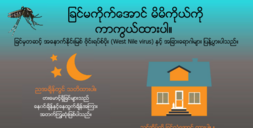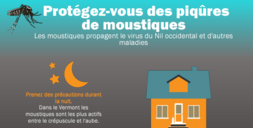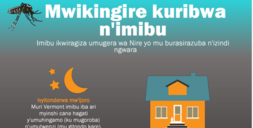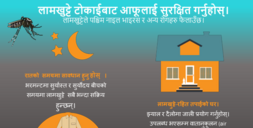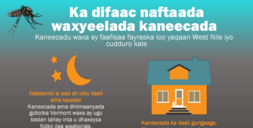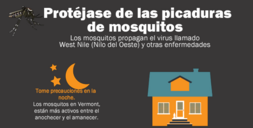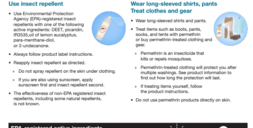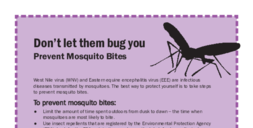In Vermont, mosquitoes may be carrying viruses that cause diseases like West Nile virus (WNV), Eastern equine encephalitis (EEE) or Jamestown Canyon virus. The best way to prevent getting sick is by preventing mosquito bites.
Mosquito season begins in spring, but the risk for disease is highest in the summer months. The risk is lower when temperatures are below 60 degrees and mosquitoes are less active. Mosquito bites continue to be a risk until the first hard frost.
Protect Yourself from Mosquito Bites
- Limit the amount of time you spend outdoors at dawn and dusk.
- Use EPA-registered insect repellent labeled as effective against mosquitoes. Apply repellent when you are going to be outdoors, especially at dawn or dusk.
- Wear long-sleeved shirts and long pants when outdoors.
- Treat clothing and gear with permethrin.
- Cover baby carriages or outdoor playpens with mosquito netting.
- Fix any holes in your screens and make sure they are tightly attached to doors and windows.
- Get rid of standing water outside your home.




